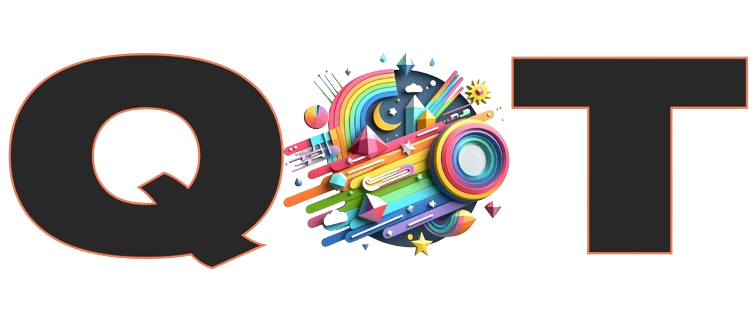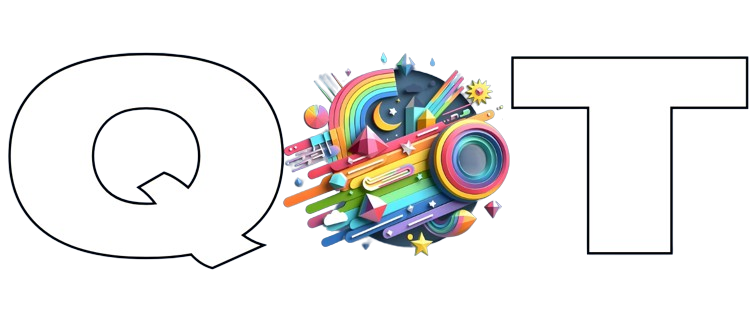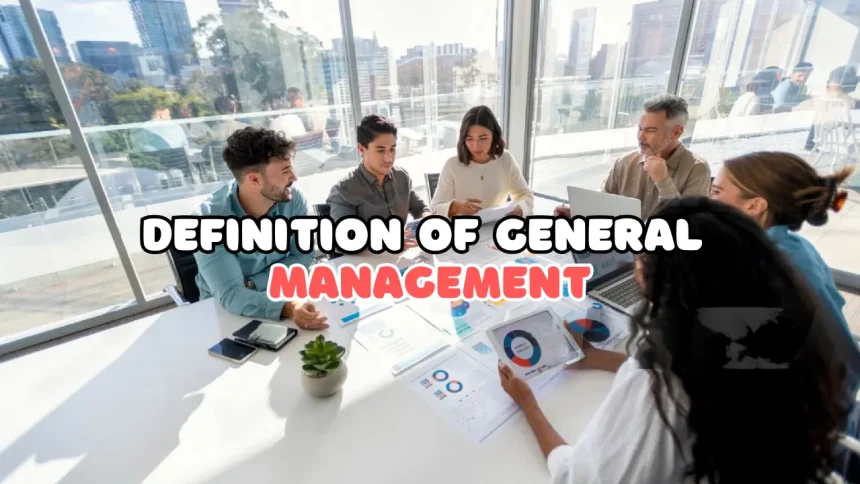Definition of General Management
General management is the practice of overseeing the various functions within an organization to ensure that it operates smoothly and efficiently. It encompasses a wide range of activities, from strategic planning to everyday operational tasks, with the goal of achieving the company’s objectives.
Importance of General Management in Business
Effective general management is crucial for the success of any business. It ensures that all parts of the organization work together harmoniously, resources are used efficiently, and the company can adapt to changes in the market. Without strong general management, businesses may struggle to meet their goals and sustain growth.

Role of a General Manager
Overview of Responsibilities
A general manager (GM) holds a pivotal role in any organization. They are responsible for planning, directing, and coordinating the operations of the business. This includes overseeing different departments, managing budgets, developing strategic plans, and ensuring overall organizational effectiveness.
Key Skills and Qualities
To excel as a general manager, one needs a diverse skill set. Key skills include leadership, communication, problem-solving, and decision-making. Additionally, a successful GM should possess qualities such as adaptability, integrity, and a strong sense of responsibility.
Core Functions of General Management
Planning
Planning is the foundation of general management. It involves setting objectives, determining the best course of action to achieve those objectives, and preparing for potential challenges. Effective planning ensures that the organization has a clear direction and purpose.
Organizing
Organizing involves arranging resources and tasks in a structured way to achieve the company’s goals. This includes creating an organizational structure, defining roles and responsibilities, and allocating resources efficiently.
Leading
Leading is about guiding and motivating employees to achieve organizational goals. This involves setting a vision, inspiring team members, and fostering a positive work environment. Good leadership is critical for employee engagement and productivity.
Controlling
Controlling is the process of monitoring performance and making adjustments as needed to stay on track with goals. This involves setting performance standards, measuring actual performance, and implementing corrective actions when necessary.
Strategic Planning in General Management
Setting Goals and Objectives
Strategic planning starts with setting clear, achievable goals and objectives. These should be aligned with the company’s mission and vision and should provide a roadmap for future growth and development.
SWOT Analysis
A SWOT analysis (Strengths, Weaknesses, Opportunities, Threats) is a valuable tool in strategic planning. It helps identify internal and external factors that can impact the organization, allowing managers to develop strategies that leverage strengths and opportunities while addressing weaknesses and threats.
Long-term vs. Short-term Planning
General managers must balance long-term and short-term planning. Long-term planning focuses on the overall direction and future of the company, while short-term planning addresses immediate needs and operational efficiency.
Organizing Resources
Allocation of Resources
Effective resource allocation is critical for achieving organizational goals. This involves distributing resources such as personnel, finances, and materials in a way that maximizes efficiency and effectiveness.
Structuring the Organization
Creating an appropriate organizational structure is essential for efficient operations. This includes defining departments, establishing reporting lines, and ensuring that there is a clear hierarchy and communication flow.
Delegation of Duties
Delegation is a key aspect of organizing. General managers must assign tasks and responsibilities to the right people, ensuring that employees have the authority and resources needed to perform their duties effectively.
Leadership in General Management
Leadership Styles
Different situations require different leadership styles. Common styles include autocratic, democratic, and laissez-faire leadership. An effective GM knows when to apply each style to motivate and guide their team.
Motivating Employees
Motivation is crucial for employee performance. General managers can use various techniques to motivate their team, such as setting clear goals, providing feedback, and recognizing achievements.
Building a Positive Work Culture
A positive work culture enhances employee satisfaction and productivity. General managers play a key role in shaping the organizational culture by promoting values such as teamwork, respect, and innovation.
Control and Monitoring
Establishing Performance Standards
Setting clear performance standards is essential for measuring progress. These standards should be specific, measurable, achievable, relevant, and time-bound (SMART).
Monitoring Progress
Regular monitoring ensures that the organization stays on track with its goals. This involves reviewing performance data, conducting regular check-ins, and adjusting plans as needed.
Implementing Corrective Actions
When performance deviates from the plan, corrective actions are necessary. This could involve reallocating resources, revising strategies, or providing additional training to employees.
Decision Making in General Management
Types of Decisions
General managers make a variety of decisions, from strategic decisions that shape the future of the company to operational decisions that impact day-to-day activities.
Decision-Making Process
The decision-making process typically involves identifying the problem, gathering information, evaluating options, making the decision, and reviewing its effectiveness.
Importance of Data-Driven Decisions
Using data to inform decisions can significantly improve outcomes. Data-driven decisions are based on factual information and analysis, reducing the risk of errors and biases.
Communication in General Management
Internal Communication
Effective internal communication ensures that all employees are informed and aligned with the company’s goals. This includes regular meetings, updates, and an open-door policy for feedback.
External Communication
External communication involves interacting with stakeholders such as customers, suppliers, and investors. Clear and consistent communication helps build trust and maintain strong relationships.
Role of Technology in Communication
Technology plays a crucial role in modern communication. Tools such as email, instant messaging, and video conferencing facilitate quick and efficient communication within and outside the organization.
Change Management
Understanding Change
Change is inevitable in any organization. Understanding the nature and impact of change is the first step in managing it effectively.
Managing Resistance to Change
Resistance to change is a common challenge. General managers must address concerns, provide support, and communicate the benefits of change to help employees adapt.
Implementing Change Effectively
Successful change implementation requires careful planning, clear communication, and ongoing support. General managers should ensure that all stakeholders are involved and committed to the change process.
Risk Management
Identifying Risks
Identifying potential risks is the first step in risk management. This includes both internal risks, such as operational issues, and external risks, such as market fluctuations.
Analyzing and Prioritizing Risks
Once risks are identified, they need to be analyzed and prioritized based on their potential impact and likelihood. This helps managers focus on the most critical risks.
Mitigation Strategies
Developing strategies to mitigate risks is essential for minimizing their impact. This could involve diversifying investments, implementing safety protocols, or developing contingency plans.
Performance Management
Setting Performance Metrics
Performance metrics provide a way to measure and evaluate employee performance. These metrics should be aligned with the company’s goals and objectives.
Performance Appraisals
Regular performance appraisals help employees understand their strengths and areas for improvement. They also provide an opportunity to set new goals and develop career plans.
Employee Development Plans
Employee development plans are essential for career growth and organizational success. These plans should include training, mentoring, and opportunities for advancement.
Financial Management
Budgeting
Budgeting involves planning and controlling the organization’s finances. This includes setting financial goals, forecasting revenues and expenses, and monitoring financial performance.
Financial Reporting
Accurate financial reporting is critical for informed decision-making. It involves preparing financial statements, such as income statements and balance sheets, to provide a clear picture of the company’s financial health.
Cost Control
Cost control is essential for maintaining profitability. This involves monitoring expenses, identifying areas for cost reduction, and implementing cost-saving measures.
Ethical Considerations in General Management
Corporate Social Responsibility
Corporate social responsibility (CSR) involves taking actions that benefit society and the environment. This can include sustainable practices, community engagement, and ethical business conduct.
Ethical Decision Making
Ethical decision-making requires considering the moral implications of business actions. General managers must ensure that their decisions align with the company’s values and ethical standards.
Building an Ethical Culture
An ethical culture promotes integrity and accountability within the organization. General managers can foster this culture by setting a good example, promoting ethical behavior, and implementing clear policies.
Conclusion
General management plays a vital role in the success of any business. By effectively planning, organizing, leading, and controlling, general managers ensure that the organization operates smoothly and achieves its goals. As the business environment continues to evolve, the importance of adaptive and strategic general management will only grow.
FAQs
What are the main duties of a general manager?
The main duties of a general manager include overseeing daily operations, developing strategic plans, managing resources, and leading the team to achieve organizational goals.
How does general management differ from specialized management?
General management focuses on the overall coordination of all business functions, while specialized management targets specific areas such as marketing, finance, or human resources.
What skills are essential for a successful general manager?
Essential skills for a successful general manager include leadership, communication, problem-solving, decision-making, and the ability to adapt to changing circumstances.
How can a general manager improve team performance?
A general manager can improve team performance by setting clear goals, providing regular feedback, recognizing achievements, and fostering a positive work environment.
What are common challenges faced by general managers?
Common challenges faced by general managers include managing change, handling conflicts, balancing short-term and long-term goals, and keeping up with market trends.








